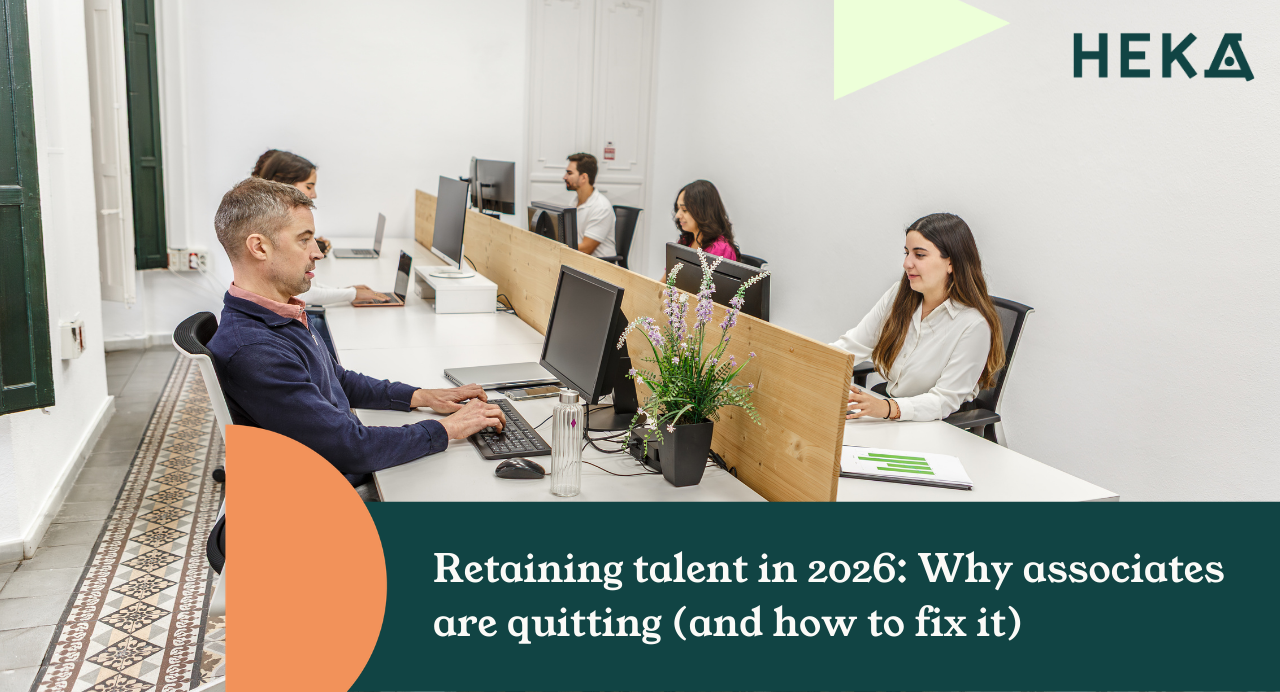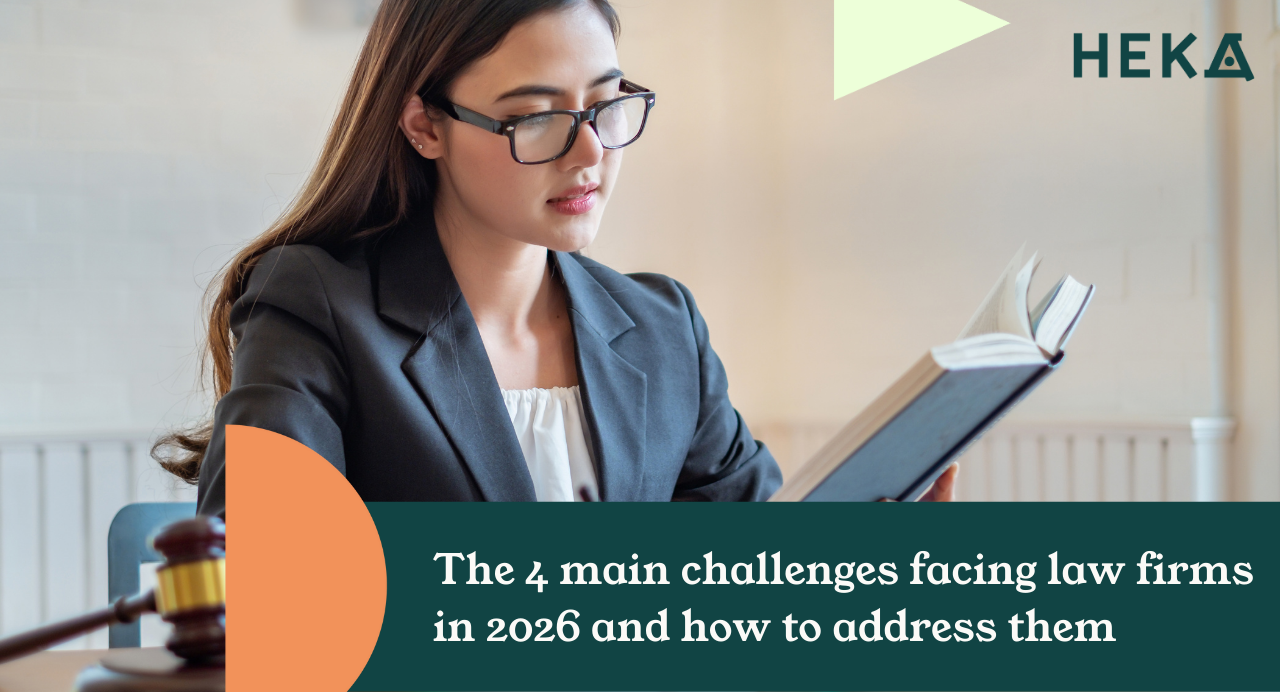A quick summary:
Every few decades, a new generation becomes the largest segment of workers. Having now entered the 2020s, Millennials and those of Gen Z now make up more than half of the workforce in the UK. What does this mean for employers who want to attract and retain talent? How do leaders transform their employee benefits so they cater to a new generation of workers?
It’s 2022, meaning those born between 1981 - 1996 (Millennials) and those born between 1997 - 2012 (Gen Z) begin to make up the larger segment of the modern workforce. And with each generation comes its changing attitudes, values, goals, and other attributes.
Many of the characteristics that make up these two generations influence overall job satisfaction, as they reflect a new perspective on how to lead better lives. Unfortunately, the workplace hasn’t moved with its people, and now many workers feel their values go ignored when it comes to their working lives.
So, what exactly do Millennials and Gen Z workers value? How can you revamp your employee benefits for a new workforce and what are just some of the ideas of better employee benefits?

Characteristics and values of Millennials & Gen Z workers
When we talk about Millennials and Gen Z, an array of different characteristics spring to mind. One that doesn’t quite reflect the values and attitudes of the preceding generations. Although this isn’t new, as most generations whether it’s Gen X, baby boomers, or the greatest generation, all see the world differently from the last.
According to Getapp.com, here’s their summary of each generations’ characteristics:
- Baby boomers are dedicated workers who value visibility in their work, are competitive and driven individuals, and have had to adapt to technology.
- Generation X are independent and well-educated individuals who value autonomy, are comfortable with technology, and want a clear distinction between work and personal life.
- Millennials are both collaborative and impact-oriented. They’re also motivated by meaningful work that leverages their creativity, while also being tech natives.
- Generation Z is optimistic yet risk-averse. For most, they expect to work with technology and collectively value social responsibility and diversity. This generation has also begun breaking away from institutional structures when it comes to education work and finances. They also want stability and flexibility.
As you can see, each generation doesn’t follow on from the next. In fact, their values and attitudes, both towards work and everyday life change in leaps and bounds. As we mentioned above, employers must take action when it comes to workplace environments, employee benefits, and the general attitudes and values of the company, if they are to attract a younger generation of employees.
Together, Millennials and Gen Z workers want collaborative and impactful careers; one in which they can be creative and work collectively on projects that they perceive as meaningful. From leaders, this generation of employees needs to hear how their contributions will make a difference, and want actionable feedback.
As for the structure of their working lives, they expect stability yet flexibility. Holistic organisational cultures with hybrid and remote working arrangements are more appealing to this age of workers, and their digital-first approach.
For most employers, the workplace and their employee benefits packages do not reflect these values and attributes. It is the companies who recognise this shift in their workforce who will thrive in the next decade or so.
Moving forward, what exactly are the kind of employee benefits that Millennials and Gen Z workers desire for a healthier and happier workplace?

Choosing employee benefits for a new workforce
Now that we are more aware of the changing attitudes and characteristics of the workforce, what kind of employee benefits does your business need to offer for sustainable success?
Firstly, one of the biggest characteristics of Millennials and Gen Z is their attitude to leading health-conscious lives. For this reason, benefits that revolve around life insurance, dental care, and private healthcare have become standard employee benefits.
However, these generations of workers also spend much more on fitness equipment, clothing, and gym memberships. According to an Marketwatch.com article, some will spend more on health and fitness than tuition across their lifetime.
As an employer, benefits that can help cover some of these costs will go a long way with staff. Employee benefits must look at how to help people lead healthier, happier lives. This comes down to the food these generations eat, the sports brands they shop with, and the places they go to workout.
Millennials and Gen Z workers are also more likely to be risk-averse, with the desire for better financial wellbeing. As many of these individuals plan to attend or have attended university, they will look to employers who can help with paying down their tuition fees. This is a great employee benefit for younger workers and satisfies their immediate financial needs.
Talking about cutting costs and saving money, workers of these two generations are also digital-first and value remote and hybrid working arrangements. This mainly comes down to saving money and time on commute costs, which will be extremely appealing when combined with tuition reimbursements.
Believe it or not, Millennials, and Gen Z especially, are two groups of society who struggle with stress, anxiety, and depression more so than previous generations. In fact, only 45% of those in Gen Z report their mental health as “excellent” or “good”. This is in contrast to much better results reported from Millennials (56%), Gen X (51%), and boomers (70%).
As you can see, there’s a very evident problem with mental health and younger generations. For this reason, employers who want to build healthier, happier teams should consider how they support mental health in the workplace.
Benefits such as subsidised therapy sessions, telemedicine programmes, virtual mental health counseling, and manager-employee wellbeing meetings will go a long way. Outside of employee benefits, creating an open environment to these topics will also help retain employees of these two generations.
Finally, and as we touched on above, Millennials and Gen Z individuals are much more money cautious. Employee benefits that focus on improving financial wellbeing will see a large uptake in the next decade. With many of these generations struggling financially, an employer's support, whether that’s through subsidised living costs or financial education programmes, will be well-received and build loyalty between business and workforce.
Gen Z is optimistic and wants leaders to share the same idea of the future as they do. Helping them to work on building a better future for themselves primarily, will do wonders for retaining employees.
While we're on the subject of choosing the right employee benefits, let's not ignore health cash plans. A lot of employers offer employee cash plans, and while they can work, they aren't necessarily the best option.
Cash plans allow employees to access a range of healthcare services such as mental health support, physio and more at an affordable price. In fact, the costs of a cash plan (often a monthly fee for the employee) can be refunded by the employer.
The fact of the matter is, wellbeing is subjective, and what works for one person doesn't always work for another. Offering a limited experience, cash plans aren't always the best option. Instead, platforms like Heka offer more than 3,000 benefits across various wellbeing categories, so employees can really take care of their health and wellbeing.

Forward-thinking companies leading the way for a new generation
Now that we’ve covered the characteristics of these two generations, along with employee benefits they appreciate, what companies are already leading the way with their employee benefits package?
Starting with one of the most recognisable companies on the planet, Google. With their state-of-the-art campus, it’s no surprise there’s a gym with free workout classes, free food, massage therapists, and much more. Google has also been known to pay a sum of around 50% of an employee's salary to their family for 10 years after they pass away. Their emphasis on both employees and their wider families makes Google one of the forward-thinking companies of employee benefits.
Microsoft
Moving on to Microsoft, this tech giant has been around for many years, and so has its staff. That’s because it has committed to building healthier working environments through employee benefits including health cover, flexible work schedules, stay-fit programmes, and on-campus health clinics.
Netflix
Next on the list is the popular streaming service Netflix. Relatively new to the tech scene in the past decade, Netflix has built a strong reputation in managing people and empowering healthier, happier lives. Employees can enjoy ample parental benefits such as fully paid, unlimited parental leave.
Salesforce
Last but not least, Salesforce has become a game-changer in employee benefits. Staff are encouraged and provided with the opportunity to take six days of paid leave for volunteering. The company is also very big on education and will reimburse the full cost of relevant courses and books for employees.
These employee benefits clearly go above and beyond, and that’s why these companies deserve this recognition. Of course, their more-than-healthy margins allow for the resources to support a happier workforce, but it shows just how important it truly is to put people first in business.

How Heka helps modernise your employee benefits
Creating better employee benefits packages isn’t always easy and straightforward - but it doesn’t have to be hard. Now that we’ve covered what to expect from employee demands for better work-life balance in the coming years, along with examples of how forward-thinking companies are adopting new employee benefits, it’s time to think about your business!
Here at Heka, we’ve spoken with hundreds of HR professionals and business leaders alike, and we’ve seen one questions time and time again…
“How do I support my team with better employee benefits that focus on them?”
That’s exactly where Heka can help. Our wellbeing platform allows employees to really focus on their own mental and physical health. After all, in this post we’ve established the future workforce is health-conscious, needs better support for mental health, and wants to improve financial wellbeing.
With Heka, everything from online therapy sessions, personal trainers, yoga classes, and financial wellbeing consultations are all available. It truly is one wellbeing platform, with more than one thousand wellbeing experiences.
Speak to our wellbeing experts today by booking a demo!






